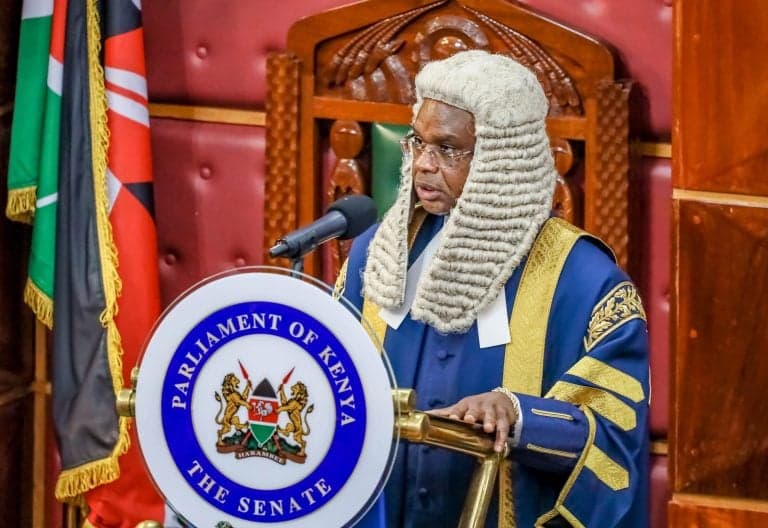We're loading the full news article for you. This includes the article content, images, author information, and related articles.
Kericho, Kenya – Both the Senate and the National Assembly are set to resume sittings on Tuesday, September 23, 2025, after a month-long recess. The two houses proceeded on the 4-week annual hiatus on Thursday, August 15, 2025

Nairobi, Kenya — September 23, 2025, 10:00 EAT.
Both the Senate and National Assembly will resume sittings today (Tuesday, September 23) after a month-long recess. Lawmakers return to a heavy legislative schedule, including vetting of key nominees, debates on constitutional amendment proposals, international agreements, and bills on privatisation, roads laws and regulation of virtual assets.
After a ~4-week break that began mid-August, Parliament reopens with members expected to debate and vote on a range of urgent matters.
In the National Assembly, vetting of President Ruto’s nominees for high commissioners and ambassadors (e.g. to Saudi Arabia, Singapore, Namibia, etc.), as well as nominees for Registrar of Political Parties and Chair of the Kenya National Commission on Human Rights, are top on the agenda.
Key bills lined up include the Privatisation Bill (No. 36 of 2025) which seeks to overhaul how state entities are sold; Kenya Roads (Amendment) Bill (No. 3 of 2025) to reclassify roads and allocate maintenance funds; and the Virtual Asset Service Providers (Amendment) Bill (No. 15 of 2025) to regulate digital asset platforms.
The Senate is set to make the Constitution of Kenya (Amendment) Bill, 2025 (Senate Bill No. 13 of 2025) its main business. The proposed changes include enhancing the Senate’s legislative and budget oversight powers, joint vetting of key state officers by both Houses, and setting up a County Assembly Fund.
The recess started around August 15, 2025 and was extended by about a week, especially for the Senate, due to urgent issues requiring attention (e.g. the impeachment motion against Kericho Governor Erick Mutai).
During the recess, MPs and Senators have had the opportunity to engage with constituents, review pending legislation, and prepare for these priority sessions.
Mandate to legislate: Under the Constitution and standing orders, Parliament must consider, debate, and vote on bills passed, treaties, nominations, and oversight reports.
Vetting & approval: Positions like Ambassador, Registrar of Political Parties, KNCHR Chair, etc., require parliamentary vetting under Articles and Acts that stipulate legislative oversight.
Constitutional amendment process: Any amendment (like Senate Bill 13 of 2025) must follow required legislative stages — readings in both Houses, possible public participation, and constitutional requirements for passage.
National Assembly Members: Many express urgency to fast-track bills seen as crucial for economic recovery, infrastructure funding, regulation of emerging sectors (e.g. digital assets).
Senators: Focused on ensuring that the constitutional amendments bolster devolution, strengthen county oversight, and define roles between national and county governments more clearly.
Civil society & citizens: Will be watching closely, especially for public participation on the constitutional amendment bill and transparency in vetting nominees. Public expectations are high for accountability.
|
Item |
Detail |
|---|---|
|
Recess start |
~15 August 2025 |
|
House resumption date |
September 23, 2025 |
|
Number of priority bills |
At least 3 major bills named; multiple international agreements |
|
Key constitutional bill |
Constitution of Kenya (Amendment) Bill, 2025 (Senate Bill No. 13) |
Legislative bottlenecks: The packed agenda may lead to rushed debates, risking inadequate scrutiny of complex bills.
Political clashes: Constitutional amendments and vetting can be contentious; may deepen divides between parties.
Public confidence: High expectations; failure to deliver or perceived poor performance could fuel disenchantment.
Whether all members will return on time; some may be absent due to by-election campaigns.
How much of the agenda will be completed vs. deferred.
The depth and scope of public participation to be allowed, especially for the amendment bill.
2025-08-15: Parliament begins recess.
Recess extended by Senate: Around mid-September after urgent matters.
2025-09-23: Both Houses reconvene.
First sittings: motions, vetting reports, and keynote speeches.
Debates on constitutional amendments — especially public feedback and feedback windows.
Outcomes of bills on privatization, roads law, virtual assets, and political party regulation.
Editor’s Note: This article is based on reporting from Capital FM, The Star, People Daily, and Eastleigh Voice. Statements, bill references, and dates drawn from parliamentary notices and media reports.
Keep the conversation in one place—threads here stay linked to the story and in the forums.
Sign in to start a discussion
Start a conversation about this story and keep it linked here.
Other hot threads
E-sports and Gaming Community in Kenya
Active 9 months ago
The Role of Technology in Modern Agriculture (AgriTech)
Active 9 months ago
Popular Recreational Activities Across Counties
Active 9 months ago
Investing in Youth Sports Development Programs
Active 9 months ago